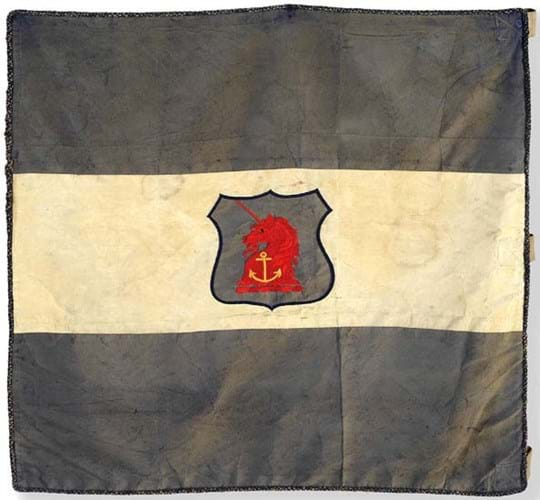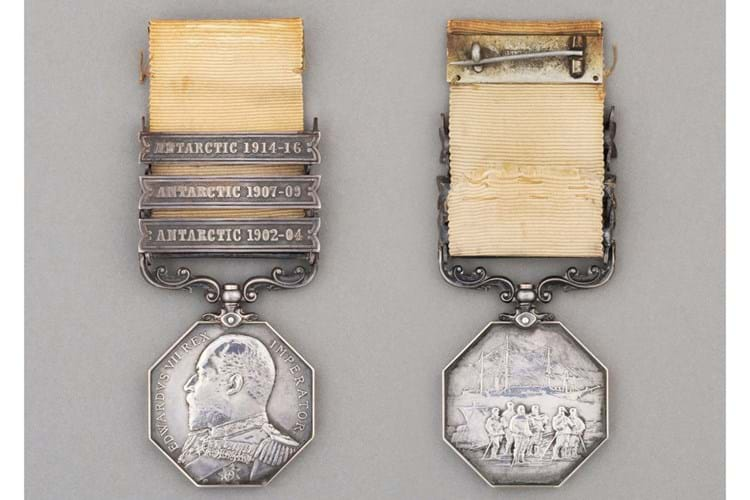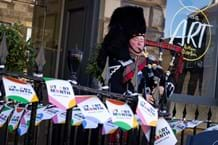Arts and heritage minister Lord Parkinson of Whitley Bay and the Department for Digital, Culture, Media & Sport (DCMS) announced the block following advice from Reviewing Committee on the Export of Works of Art and Objects of Cultural Interest.
The Polar medal was awarded to Shackleton in recognition of his three polar expeditions (1902–04, 1907–09, 1914–16), the latter two of which he led. It is the most important of the UK medals awarded to him, given it is the only medal to recognise all three of his expeditions. It is also the last of Shackleton’s medals still in the UK.
It is believed to have been owned privately and when an export licence was applied for the temporary block was placed on the application in the hope a buyer in the UK can raise £1.7m plus VAT of £44,000.
In the details of provenance for the medal by DCMS it is listed as 'by descent from the recipient'.
Shackleton made three expeditions to the Antarctic in the early 20th century with his 1907 Nimrod expedition aiming to be the first to reach the South Pole. Although unsuccessful, the expedition was the first in history to travel within 100 miles of the South Pole, successfully ascend Mount Erebus and the first to set foot on the South Polar Plateau. His 1909 expedition was the greatest advance to the Pole in history until Amundsen and Scott reached the South Pole separately three years later in 1912.
Arctic Medal
The Arctic medal was instituted in 1857 and renamed the Polar medal in 1904. It is given to individuals for outstanding service to the field of polar research. It was first awarded to the participants in Captain Robert Scott's successful first expedition to the Antarctic, and then to reward future expedition members and leaders.
Lord Parkinson said: “Over the course of three Antarctic expeditions, Sir Ernest Shackleton demonstrated his dedication to polar research, his extraordinary bravery, and a thirst for adventure unrivalled even by many of his contemporaries.
“The admiration and interest which Shackleton’s exploits inspired continues to this day, so it is right that this medal – a recognition of his immense contribution to polar exploration – should be saved for the nation so that it can continue to inspire the public for many years to come.”
“Outstanding significance”
Committee chairman, Andrew Hochhauser KC, said: “This is the original, full-sized version of the medal awarded to Shackleton. This unique artefact is of outstanding significance as the most important and original of the UK medals to have been awarded to one of Britain’s greatest polar explorers. It should go to a UK public institution where it can remind visitors of Shackleton’s extraordinary achievements and inspire future generations of leaders.”
The committee made its recommendation on the basis that the medal was found to meet the first Waverley criterion, that its departure from the UK would be a misfortune because it was so closely connected with the nation’s history and national life.

The sledge from Shackleton’s expedition that belonged to Eric Marshall. Along with the flag, the two pieces have been bought for £204,700 and will now go to two UK institutions.
In 2020, an export bar was placed on the sledge and flag from the Nimrod expedition successfully saving them for the public, with the 11ft sledge now owned by the National Maritime Museum (NMM) in Greenwich and the sledge flag owned by the Scott Polar Research Institute in Cambridge.

The flag from Shackleton’s expedition that belonged to Eric Marshall. Along with the sledge, the two pieces have been bought for £204,700 and will now go to two UK institutions.
Some of Shackleton’s medals were sold at Christie’s in 2015.
A decision on the export licence application for Shackleton’s Polar medal will be deferred until May 1.






